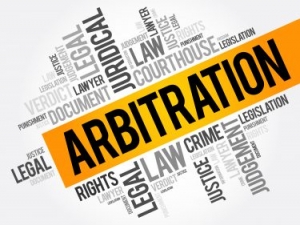Pennsylvania’s New Arbitration Act: What Non-Litigators Should Know
On July 1, 2019 arbitration agreements in Pennsylvania will be governed by the Revised Uniform Arbitration Act (RUAA). RUAA revises the Uniform Arbitration Act which has been in force in Pennsylvania since 1980. What should non-litigators know about RUAA?
1. Application
RUAA applies on a mandatory basis to all agreements to arbitrate signed after July 1, 2019. In addition, the parties to an arbitration agreement executed before July 1, 2019 can agree that RUAA’s provisions govern.
2. Common Law Arbitration
Since 1980, Pennsylvania has had in effect two options for arbitration. Parties could specify that their arbitration was governed by the terms of RUAA’s predecessor, the Uniform Arbitration Act. If they did not do so, governance of the arbitration defaulted to common law arbitration rules. Both the Uniform Arbitration Act and common law arbitration (despite its name) were codified in Pennsylvania’s Judicial Code. RUAA abolishes common law arbitration in Pennsylvania.
3. Impartiality of Arbitrators
RUAA includes disclosure requirements not previously found in the law. Under RUAA an arbitrator must make a reasonable inquiry to determine the existence of any facts which a reasonable person would consider likely to affect an arbitrator’s impartiality. These include a personal or financial interest in the outcome of the case, past or present relationships with the parties, their attorneys or representatives, witnesses or other appointed arbitrators. Disclosure of any such facts must be made. Failure to do so may constitute grounds to vacate any award. To preserve the right to claim partiality after disclosure, timely objection must be made and if the arbitration agreement or rules of the arbitration organization provide rules to challenge the appointment, such rules must be followed.
4. Immunity of Arbitrators
Arbitrators are afforded immunity under RUAA to the same extent that a judge, sitting in a civil action would be immune.
5. Consolidation
RUAA provides that under certain circumstances a court may order consolidation of multiple pending arbitration matters, unless the agreement prohibits such consolidation.
6. Interim Remedies
Before an arbitrator is appointed, RUAA permits the Court to enter a provisional or interim order to protect the effectiveness of the arbitration proceeding. Once appointed, an arbitrator can modify the Court’s provisional order or enter a provisional order his own. Such orders include temporary restraining orders as well as the issuance of liens and preliminary injunctions.
7. Discovery
Before RUAA, there was no guidance on the conduct of discovery other than the power granted to the arbitrator to issue subpoenas and to take testimony of witnesses who could not attend the hearing by deposition. Typically, limited discovery was conducted by agreement of the parties. RUAA makes it clear that the arbitrator can order discovery as appropriate in the circumstances and sanction a party who fails to comply with discovery requests.
8. Is a Hearing Required?
No. The arbitrator can determine that the case does not require an evidentiary hearing and if so, make a decision without holding one.
9. Attorney’s Fees, Costs and Punitive Damages
Attorney’s fees and punitive damages can be awarded to the extent that these remedies are permitted under the law in a civil action. RUAA carries forward the power granted to arbitrators under prior law to apportion the cost of the proceeding, including the fees of the arbitrators between the parties.
10. Modification and Waiver
RUAA permits waiver or modification of its provisions except for eleven provisions which cannot be waived or modified at all, and nine provisions which can be waived or modified but only after a controversy subject to arbitration arises. Examples of the former are the RUAA provisions regarding its applicability and regarding immunity of the arbitrators. Examples of the latter are the rights to seek provisional relief and the arbitrator’s disclosure provisions.
RUAA is a welcome update to Pennsylvania law. Its provisions will bring some order to a forum that, in some circumstances, was the Wild West.





















